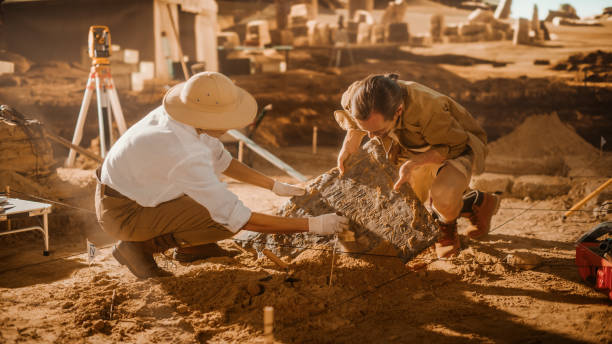Insights into the basics of colonialism with researcher and professor of archaeology Mark Hauser.
Colonialism as a practice has existed throughout the history of the world. Defined as the process of one country taking control and rules over another country or another region, there have been countless examples across the globe of one society growing by conquering adjacent territory, and settling its people within it.
However, in the 16th century technological advancements made for a major shift in the process of colonialism. Navigation allowed ships to travel further than they ever had before, connecting Europe for the first time parts of the world that had previously been remote and inaccessible.
The ability to move a large group of people across the ocean and to enact political control despite geographical separation made for one of the largest colonial projects ever, and today when colonialism is usually discussed in reference to the process of European settlement and domination over the rest of the world, including the Americas, Australia, and parts of Africa and Asia. Mark Hauser notes that by 1914 a majority of the world’s countries had been colonized by Europeans.
There is often confusion between colonialism and imperialism, and indeed there is some overlap in terms of their definitions. While there are some instances where they can be used interchangeably, historians and archaeologists like Mark Hauser use the words to refer to different things. For example settlements in distant lands such as Jamestown, the first permanent British colony in the Americas, would be considered colonialism but not imperialism. Conversely, pressuring a country to pay tribute is an example of imperialism rather than colonialism.
Colonialism is an expansive topic that has been researched extensively by people such as Mark Hauser. Highly influential in the development of the modern world, it is important for members of Western society to have a solid understanding of colonialism.
About Mark Hauser
Mark Hauser, a historical archaeologist and professor at Northwestern University, has written numerous books on the subjects of materiality, slavery and inequality. Specializing in historical archaeology, economic anthropology and colonialism amongst others, classes he has taught include ‘Mapping People Place and Space’, ‘Caribbean Pasts: Archaeological and Historical Approaches’, and ‘Fantastic Archaeology: Science and Pseudoscience about the Past.’
Rooted in the intersection of the seventeenth, eighteenth and nineteenth centuries Atlantic and Indian Oceans, Mark Hauser’s research centers on the African Diaspora and colonial contexts. Utilizing slavery’s archaeological record to map alternative geographies of the 18th and 19th-century world, publishing his first book ‘An Archaeology of Black Markets’ in 2008 and his most recent book ‘Mapping Water in Dominica’ in 2021. The former was an exploration of the informal economies of enslaved people in Jamaica, and the later examined the archaeological record of water, its management, and everyday uses during the island’s short-lived ‘sugar revolution.’
Mark Hauser’s current research is on the labor histories and social lives of two communities in the Caribbean and South India. By mapping the movement of objects, people and ideas between two oceans, he explores a ‘prehistory’ of the global south.
Hauser earned his Ph.D. from Syracuse University in 2001.





